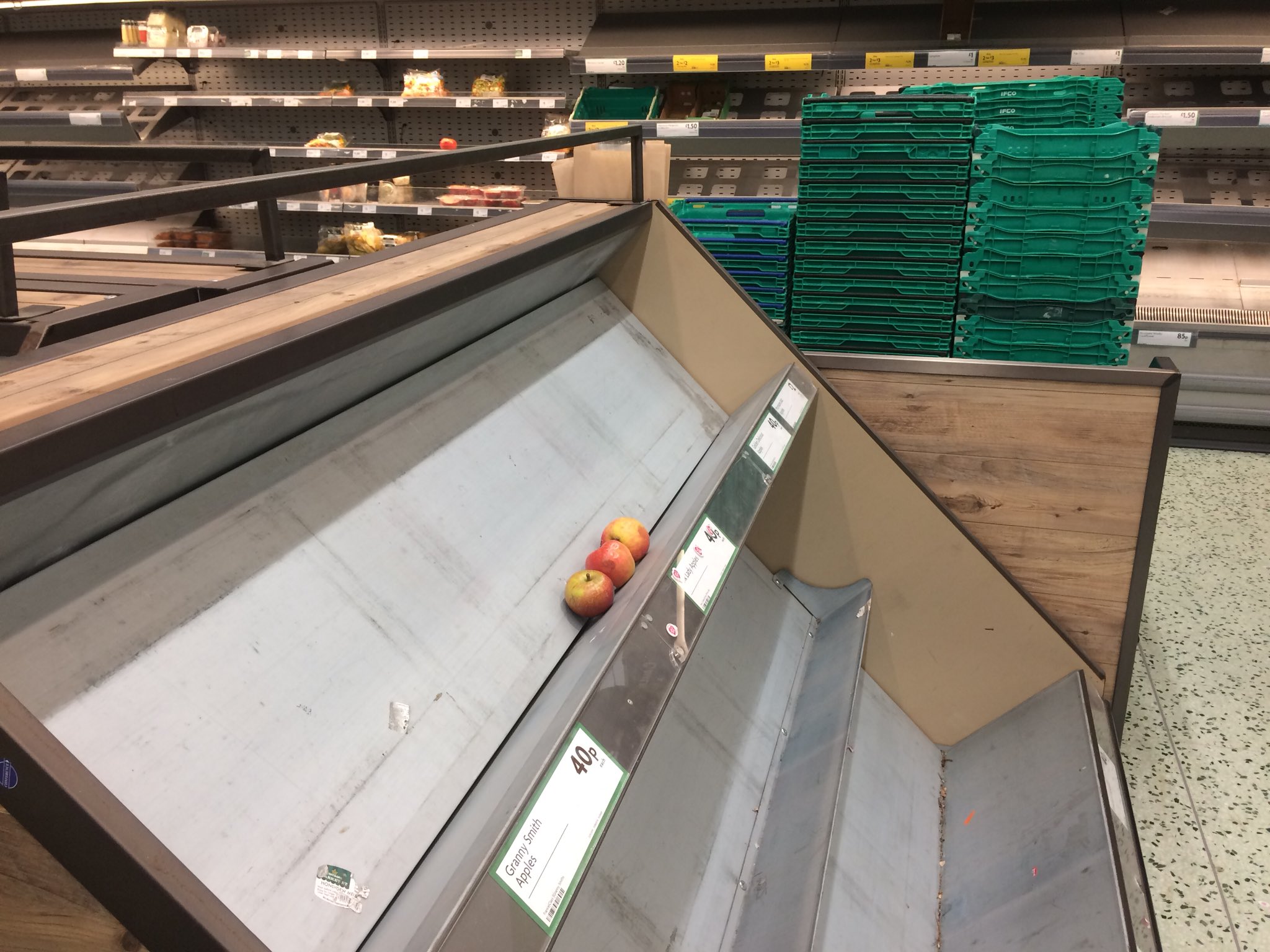The government’s planning for how the UK will feed itself in the future is ‘out-of-date’ and a cause for concern, a new report by a cross party group of MPs has found.
The report, into the UK’s food security by the committee for environment, food and rural affairs (Efra), was released last week and stated a number of threats facing the UK’s food system.
The report pointed out that only a little over a half (54 per cent) of the food eaten in the UK is home-grown or home reared, and shocks to international trade such as the Russian invasion of Ukraine and Brexit has exposed the vulnerabilities in our food supply.
It looked at how things such as labour shortages on farms and the high price of fertilisers is affecting the cost of food and high food price inflation, which is having a knock-on impact on how many people can no longer afford to buy food.
Food policy professor Tim Lang tweeted that the report is “important because it (a) excoriates HMGovt for weak planning; (b) urges annual not current 3-year food security review; (c) argues rethink of Govt strategy. A must-read for followers of UK food policy drift.”
Connecting poor diet with health-related conditions like obesity and malnutrition, the report was also a damning assessment of how the government has failed to connect policies across food and health.
The Department for Environment, Food and Rural Affairs (Defra) is responsible for food, but in total there are 15 other departments and agencies are also involved in elements of food policy. The committee said this leads to an “incoherent approach towards food policy across government”.
Obesity levels are already high at 30 per cent of the population and this is forecast to increase to around 40 per cent by 2035, creating very significant costs for the NHS, it found, adding that: “Poor diet means low-income, even food insecure, households, are more likely to be obese than the general population as healthy food tends to cost more per calorie.”
The committee also wants a sea change in the government’s attitude towards food security, quoting the food minister, Mark Spencer MP, as saying “household affordability of, and access to, food” is not part of the definition of food security.
The report said that: “Food price inflation is around levels not seen for some 45 years. While some supermarkets have noted their low margins, they are also paying high levels of dividends to shareholders.
“We are concerned that while many households are skipping meals, the Food Minister does not believe this constitutes a threat to our food security. We disagree, and we call on the Government to broaden its definition,” the report stated.
It went on to say that the group is “concerned that the Government’s UK Food Security Report (UKFSR), published in December 2021, is already out-of-date”.
The report is due for renewal in 2024, but the committee said it should be reviewed annually given recent shocks to the food supply chain, such as Covid and the Ukraine war, which it said have served as a reminder of the fragility of the food supply chain.
It said the government should consider proposals in the National Food Strategy, co-authored by Henry Dimbleby, such as delaying a planned ban on multi-buy junk food offers.
Chair of the committee, Sir Robert Goodwill, said: “Food security matters to us all. It is vital to farmers; it is vital to other food producers. And of course, it is vital for every citizen up and down the land to have a square meal at a reasonable price.
“But surprisingly, the government does not appear to be taking this very basic matter anywhere near seriously enough.”
As a House of Commons Committee report, the government now has two months to respond.















one issue that concerns me is the relentless building of houses and warehousing on agricultural land, and don’t believe it when they claim its unproductive , it wasn’t unproductive whilst they were receiving subsidies , a bad workman always blames his tools.
The ONS have said that this year is the first year deaths will outstrip births, so how long before those much needed houses are redundant..someone do the maths please.
I think the government is frightened by the idea of offering food advice. The Conservatives do not like the idea of a ‘nanny state’. How many people would consider them a ‘nanny state’ if they did offer food advice? It’s only when they start legislating for certain foods that claims might be valid, but they should be fought in the courts, not swept under the carpet.